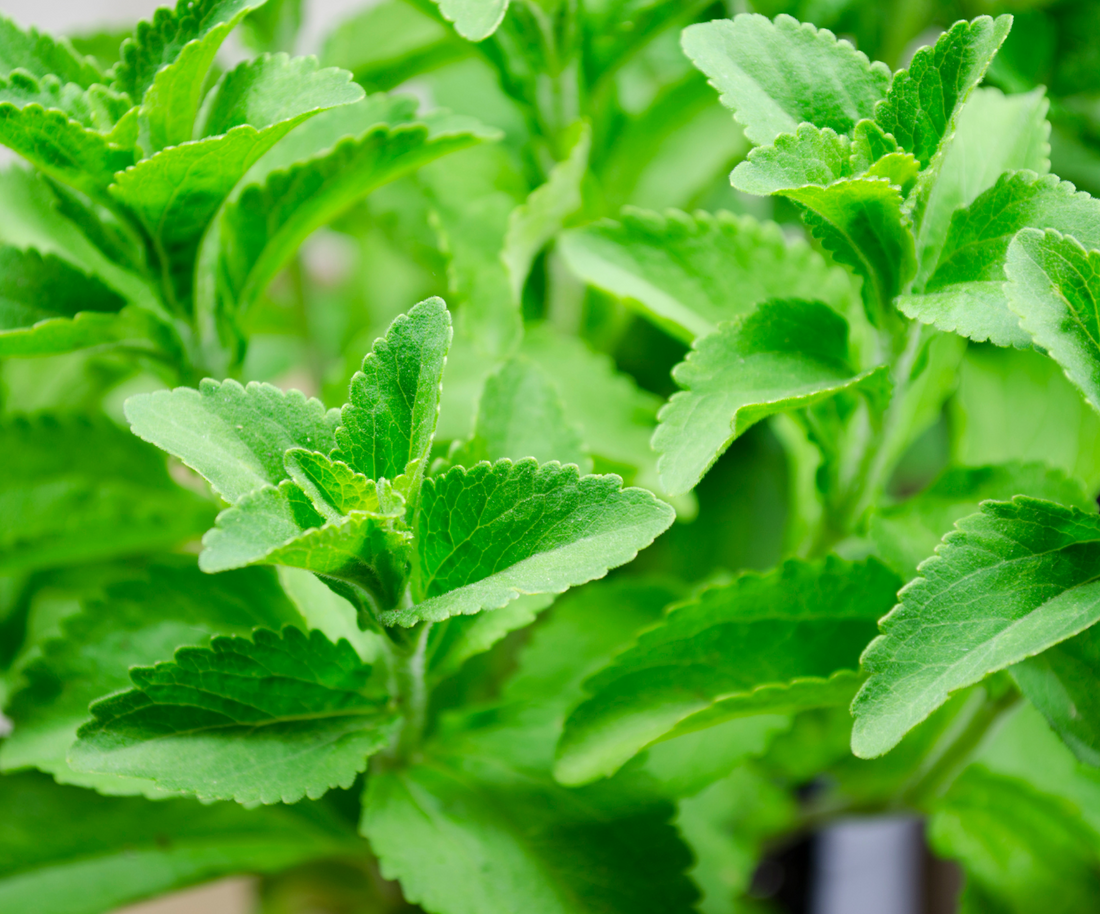The Stevia plant, also known as Stevia rebaudiana, is native to South America that has gained immense popularity in recent years due to its natural sweetness and low-calorie content.
It has been used as a sweetener for centuries in traditional medicine and as a sweetening agent in various food products.
However, there is much more to the Stevia plant than just its sweetening properties.
In this article, we will explore 7 amazing facts about the Stevia plant that you may not have known before.
From its history and origin to its health benefits and unique characteristics, these facts will shed light on the various aspects of this fascinating plant.
So, whether you are a fan of Stevia or just curious about its properties, read on to discover some interesting facts about this versatile and natural sweetener.
Stevia Plant Benefits

Stevia is a plant that has gained popularity in recent years due to its natural sweetness and low-calorie content.
However, it is not just a sweetener.
It has been used for centuries as a traditional medicine, and its leaves contain a variety of beneficial compounds that have potential health benefits.
In this section, we will explore some of the potential stevia plant benefits.
1. Low-Calorie Sweetener
One of the most well-known benefits of Stevia is its use as a natural, low-calorie sweetener.
Stevia contains compounds called steviol glycosides, which are responsible for its sweet taste.
These compounds are non-caloric and do not raise blood sugar levels, making Stevia a great alternative to artificial sweeteners or sugar for those looking to reduce their calorie intake.
2. Blood Sugar Control
Some studies suggest that Stevia may have a positive effect on blood sugar control.
The steviol glycosides in Stevia do not affect blood glucose levels, and in some studies, they have even been shown to lower blood sugar levels.
This makes Stevia a potential option for people with diabetes or those looking to manage their blood sugar levels.
3. Anti-Inflammatory Properties
Stevia has been shown to have anti-inflammatory properties. Inflammation is linked to various health problems, including heart disease and cancer.
By reducing inflammation, Stevia may help reduce the risk of these diseases.
4. Blood Pressure Control
Some studies suggest that Stevia may help lower blood pressure. High blood pressure is a risk factor for heart disease and stroke.
Stevia may help to lower blood pressure by relaxing blood vessels.
5. Antioxidant Properties
Stevia is a good source of antioxidants, which are compounds that help protect the body from damage caused by free radicals.
Free radicals can damage cells and contribute to the development of various diseases, including cancer and heart disease.
6. Dental Health
Stevia has been shown to have antimicrobial properties and may help reduce the risk of cavities.
Unlike sugar, which feeds bacteria in the mouth, Stevia does not contribute to tooth decay.
7. Weight Management
Because Stevia is a low-calorie sweetener, it may help with weight management. By reducing calorie intake, Stevia may help to promote weight loss or prevent weight gain.
Bonvia Stevia sweetener is a great alternative to sugar for weight management as it is zero calories and does not affect blood sugar levels.
Its natural sweetness derived from the Stevia plant makes it a healthier option for those looking to reduce their sugar intake.
In conclusion to stevia plant benefits, Stevia is more than just a natural sweetener.
It contains various beneficial compounds that may have potential health benefits, including blood sugar control, anti-inflammatory properties, blood pressure control, antioxidant properties, dental health, and weight management.
While more research is needed to fully understand the health benefits of Stevia, it is a promising plant that may have a place in a healthy diet.
7 Amazing Facts About Stevia Plant

In this section, we will explore 7 amazing facts about the Stevia plant that you may not have known before.
1. Natural Sweetener
Stevia is a natural, zero-calorie sweetener.
The stevia leaves contain compounds called steviol glycosides, which are responsible for their sweet taste.
These compounds are much sweeter than sugar, and yet they do not raise blood sugar levels, making Stevia a great alternative for people with diabetes or those looking to reduce their sugar intake.
2. Ancient History
Stevia has been used for centuries by indigenous people in South America as a natural sweetener and as a traditional medicine.
In Paraguay, Stevia leaves were traditionally used to sweeten yerba mate tea. The plant was first described by European explorers in the 16th century.
3. Unique Taste
Unlike other sweeteners, Stevia has a unique taste that is often described as slightly bitter or licorice-like.
This taste can take some getting used to, but many people prefer it to the taste of artificial sweeteners.
4. Medicinal Properties
Stevia has been used for centuries in traditional medicine to treat a variety of health conditions, including diabetes, high blood pressure, and digestive problems.
Modern research has shown that Stevia may have antibacterial, antifungal, and anti-inflammatory properties, making it a potential treatment for a variety of ailments.
5. Easy To Grow
Stevia is a relatively easy plant to grow, and it can be grown in a variety of climates. It is a perennial plant that prefers warm temperatures and plenty of sunlight.
It can be grown from seeds or cuttings and is tolerant of a wide range of soil types.
6. Sustainable Crop
Stevia is a sustainable crop that requires minimal water and fertilizer compared to other crops.
It also has a high yield, with one acre of Stevia producing as much sweetener as 25 acres of sugar cane.
7. Cultural Significance
Stevia has played an important role in the culture of many South American countries. In Paraguay, for example, Stevia is considered a national treasure and is celebrated each year with a Stevia festival.
In Japan, Stevia is widely used as a sweetener and is often used in traditional Japanese sweets.
In conclusion, the Stevia plant is a fascinating and versatile plant that has a long history of use in traditional medicine and as a natural sweetener.
Its unique taste and potential health benefits make it a popular alternative to sugar and artificial sweeteners.
Whether you are a fan of Stevia or just curious about its properties, these 7 amazing facts highlight the various aspects of this remarkable plant.
Discover The Sweet And Natural Taste Of Bonvia Stevia Sweetener

Bonvia natural stevia sweetener is a sugar alternative made from the leaves of the stevia plant is a natural sweetener that has been used for centuries in South America.
There are many ways to use Bonvia natural stevia sweetener in your daily life.
You can add it to your morning coffee or tea, sprinkle it on top of your favorite breakfast cereal, or mix it into your smoothie for a sweet and healthy boost.
Bonvia natural stevia sweetener is also a great option for baking and cooking, as it provides a sugar-like sweetness without the added calories.
Give Bonvia's natural stevia sweetener a try and experience the delicious taste of a natural, calorie-free sweetener.
Final Thoughts
In conclusion, the Stevia plant is a fascinating and remarkable plant with a rich history of use as a natural sweetener.
Its zero-calorie properties, along with its potential health benefits, have made it a popular alternative to sugar and artificial sweeteners.
From its ancient roots in South America to its current global popularity, the plant continues to be a subject of interest and research.
With its sweet taste, versatility, and natural origins, Stevia is likely to remain a popular sweetener for many years to come.
FAQs
1. What is stevia's real name?
The scientific name for Stevia is Stevia rebaudiana.
2. Is stevia good or bad?
Stevia is generally considered a safe and healthy alternative to sugar and artificial sweeteners.
It is a zero-calorie sweetener that does not raise blood sugar levels, making it a good option for people who are watching their calorie intake or have diabetes or other blood sugar concerns.
Stevia also has potential health benefits, such as reducing inflammation and improving insulin sensitivity.
However, like any other food or sweetener, it is important to consume Stevia in moderation as part of a balanced diet.
Some people may also have an allergy or sensitivity to Stevia, so it is important to be aware of any potential adverse reactions.
Overall, Stevia can be a good alternative to sugar and artificial sweeteners for those who are looking for a natural and healthy way to sweeten their food and drinks.
3. What are some fun facts about stevia?
Here are some fun facts about Stevia:
- Stevia is native to Paraguay and has been used as a natural sweetener by the Guarani people for centuries.
- It is a member of the sunflower family.
- The leaves of the plant are up to 200-300 times sweeter than sugar but contain zero calories.
- The sweetening compounds in Stevia are called steviol glycosides, and there are over 40 different types found in the plant.
- They are typically grown in tropical and subtropical regions and can grow up to 3 feet tall.
- Stevia is also used in some countries as a natural remedy for various health issues, such as high blood pressure and stomach problems.

